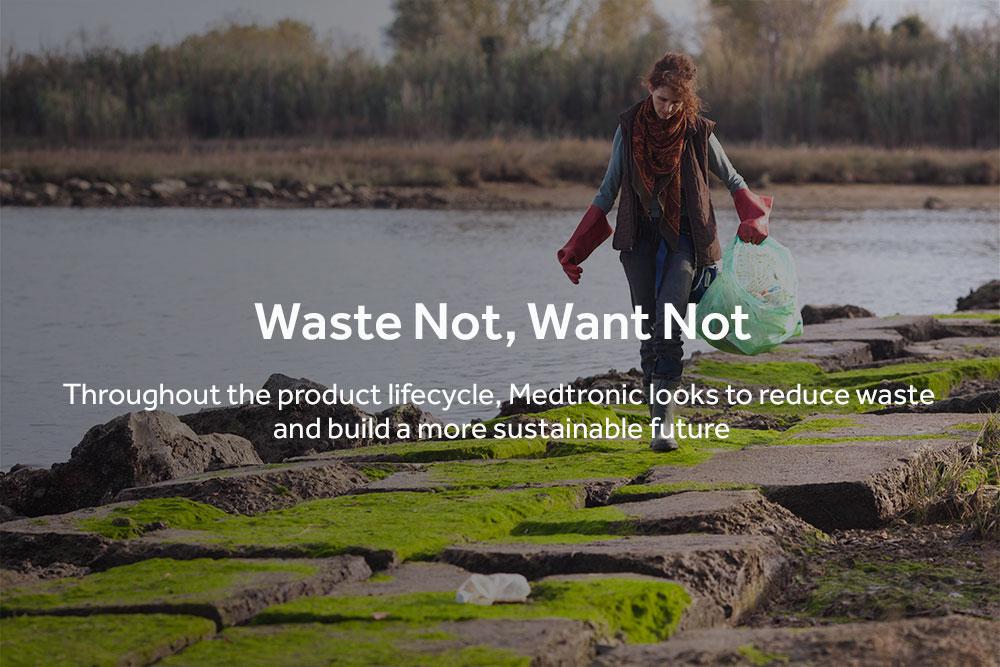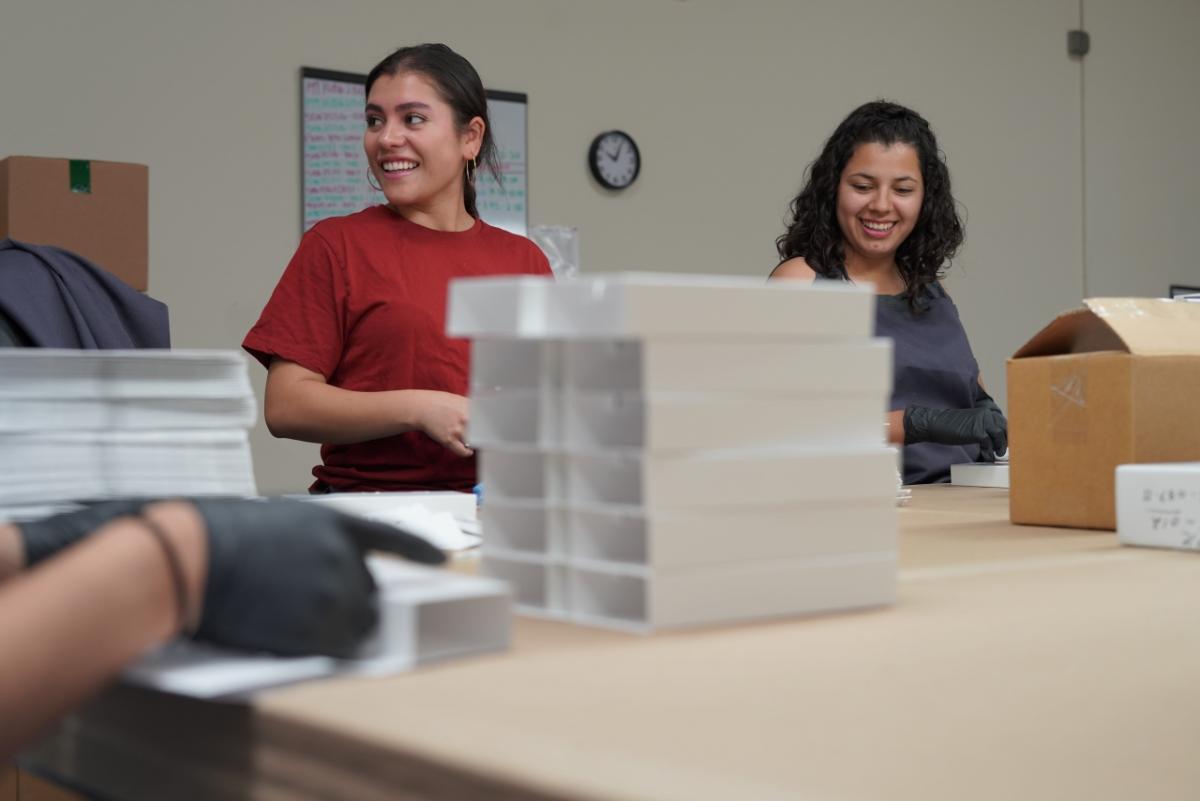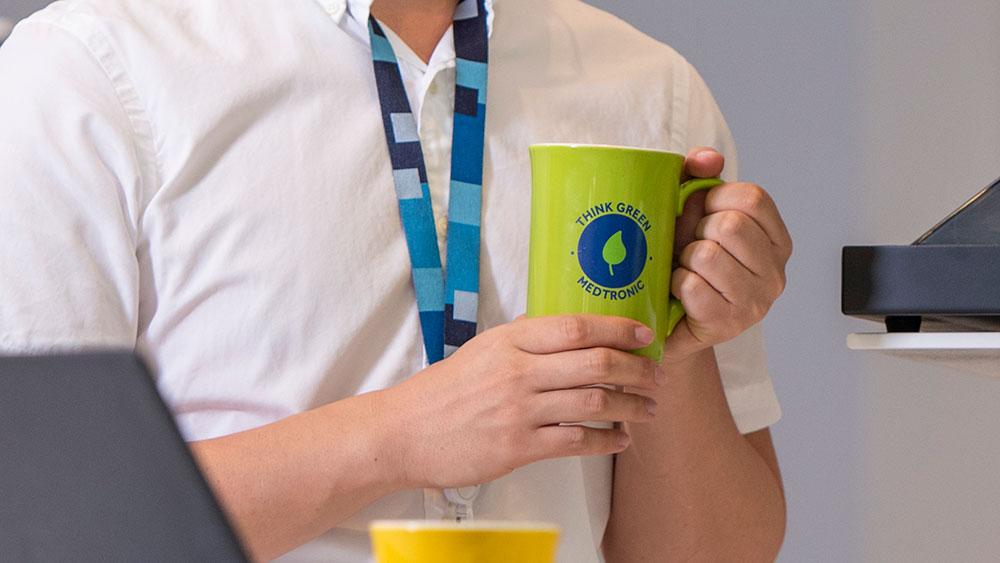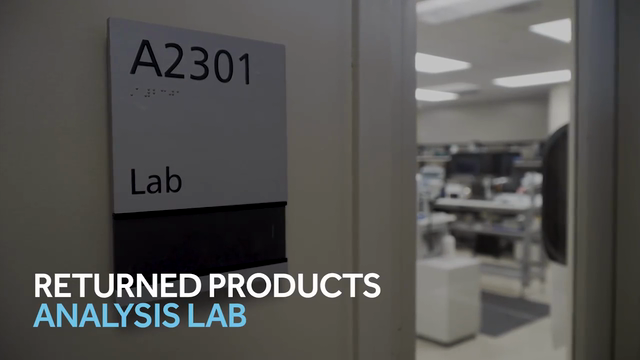Medtronic: Waste Not, Want Not
Throughout the product lifecycle, Medtronic works to reduce waste and build a more sustainable future.
Medtronic: Waste Not, Want Not
Drowning in waste
Our planet bears the proof of an indisputable truth: waste is piling up in landfills and oceans around the world. Unfortunately, medical waste is part of the problem. From single-use syringes to decommissioned insulin pumps, there is an environmental cost to the safe delivery of healthcare. As a leader in the medical device industry, Medtronic has a role to play in waste reduction. The good news? We’re tackling product waste head-on and striving for a more sustainable future.
No waste is the best waste
Hospitals in the United States produce more than 5 million tons of medical waste each year. Why? Most items used in an operating room must be sterile, which creates the need for single-use items - most of which are either incinerated or sent to a landfill for disposal. Healthcare providers can’t fix the problem alone. They need our help. That’s why Medtronic works with hospitals around the world to help optimize care delivery, reduce waste, and put time and money back into the healthcare system. Since 2019, we’ve collected almost 73 metric tons of used surgical tools, which have been converted into to electricity. Like our healthcare partners, we recognize our responsibility to reduce waste whenever we can, however we can, without compromising quality or our commitment to patient safety.
Reduce, reuse, recycle, reinvest
“The best kind of waste is the waste that is never created.” Nathan Pommier, Senior Environmental Health and Safety Manager, Medtronic
While Medtronic is committed to helping healthcare systems reduce medical waste, the work starts with us. Medtronic is working to reduce waste across our operational spectrum – from research and development to manufacturing and distribution. We are constantly looking for new ways to reduce, reuse, and recycle the resources we use to make and distribute our medical devices. Sometimes this means reimagining the way we do our work. At one of our facilities in Galway, Ireland, for example, we changed the way we used chemicals in the manufacturing process to help cut total waste generation by 34%. Reducing waste in this way allows Medtronic to optimize our financial resources and reinvest in the therapies and technologies that improve the lives of two people every second.
A product’s second life
Many of our devices are implanted inside the body, so recycling isn’t an easy option. But we do look for opportunities to refurbish and reprocess select products to give them a second life when the circumstances are appropriate. Through Medtronic “takeback” initiatives, we collected more than six million products, including pulse oximetry devices and heart monitors in fiscal year 2020. We also accept complaint-related Medtronic devices to our Returned Products Analysis Lab where they are tested and analyzed for research and development purposes. More than 100,000 devices are processed there each year, many of which are recycled by approved precious metal recycling companies.
Handle with care, and less packaging
Packaging is an important part of the product life cycle. A package that holds a sterile medical device must arrive at a hospital or clinic without compromise. Plastics and other packaging materials play an essential role in the safe delivery of medical devices. But plastic pollution is a growing global concern. Scientists estimate that eight million tons of plastic enter oceans each year. Fortunately, this is a problem we can help address. As a member of the Healthcare Plastics Recycling Council, Medtronic is working toward an economically viable solution to divert plastics away from landfills. That includes plastic used in secondary packaging, which protects our products but does not come into direct contact with them. In fiscal year 2020, we redesigned the secondary packaging for three products, including two products that are used in minimally-invasive spine therapy. The improvements to the spine products included removing an excess layer of barrier plastic and decreasing the size of product cartons. Together, these changes yielded a 45% to 85% decrease in package size.
A more sustainable supply chain
Reducing packaging waste requires working with vendors in our supply chain who share our commitment to sustainability. PKG Packaging is a small, minority-owned business based in Oxnard, California, that specializes in providing innovative and sustainable packaging for businesses across the country, including Medtronic. Since 1998, they have provided Medtronic with biodegradable and compostable packaging solutions for insulin pumps used by diabetes patients.
Employees going green
"We are seeing more employees spark ideas and rally their colleagues to build sustainable projects with remarkable results.” Valora Putnam, Senior Director, Environmental, Health and Safety.
Being a good environmental steward means creating a culture where employees feel empowered to drive sustainability in the workplace. Our employees are leading efforts to reduce, reuse, and recycle items used in our offices around the world. Under one global, employee-led initiative, we made our meetings “greener” by eliminating plastic bottles, reducing ground transportation, and eliminating paper by using a mobile meeting app. Since the COVID-19 pandemic began, we have pivoted to virtual meetings, which benefits the environment and reduces our costs. For example, during the first quarter of fiscal year 2021, we saved 29,568 pounds of paper, 960 pounds of plastic bottles of water bottles, and 384,000 pounds of jet fuel by switching from in-person events to virtual ones. We are reducing the size of our environmental footprint, one step at a time, one meeting at a time.
Small changes can make a big difference
By promoting reusable utensils, cups, and dishes, employees in our Fort Worth, Texas, office eliminated more than 600,000 Styrofoam cups at a cost savings of $12,000 a year in 2019. They also started a weekly clean-up of the facility and surrounding property, a gardening club, and two recycling programs. "If everyone here stopped using Styrofoam, that's 3,000 cups a week saved from the landfill,” said Sandra Rosas, a project manager for Medtronic who led the initiative. “It only takes a small change to make a big difference."
Cut waste, accelerate progress
Reducing waste is a shared responsibility at Medtronic. We are vested in the effort because we recognize the important role we play. From our office workers to the engineers working in labs, each of us can be part of the solution. Already, we are redefining waste, often finding treasure in what was considered trash. We are constantly pushing our own boundaries to prevent waste. The path ahead is challenging, but Medtronic is committed to leading the way.





